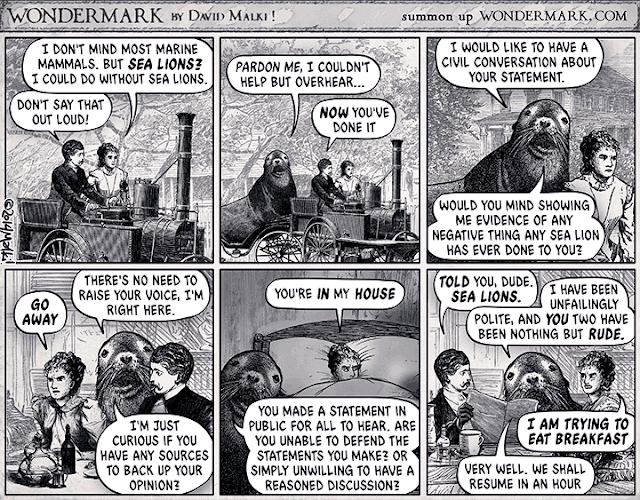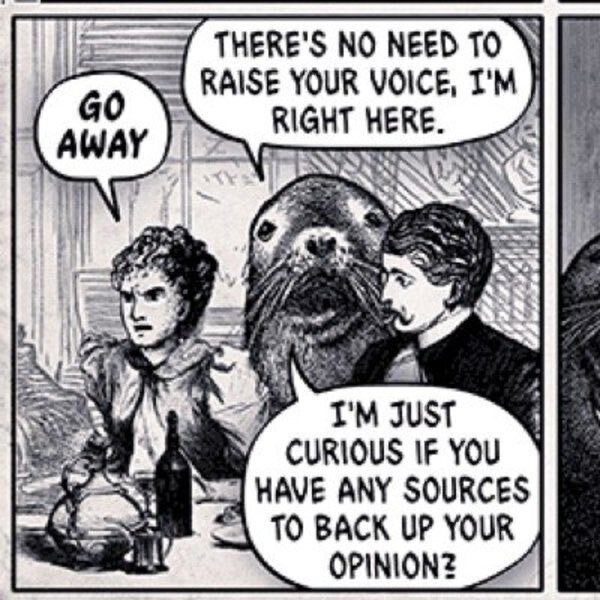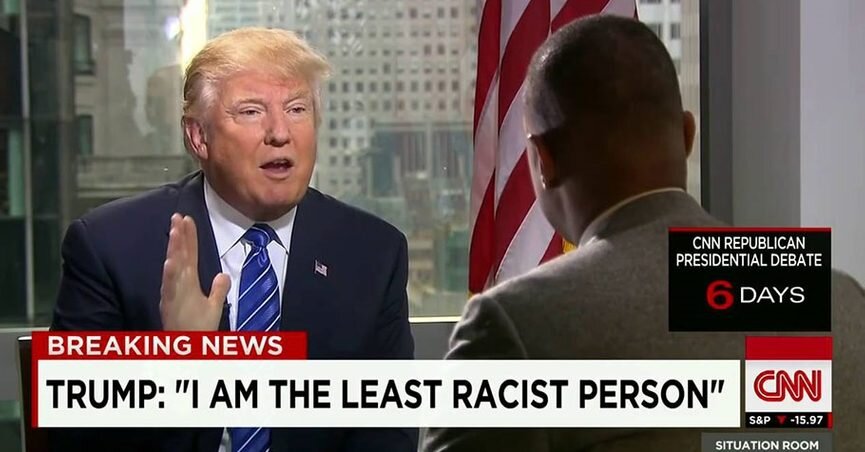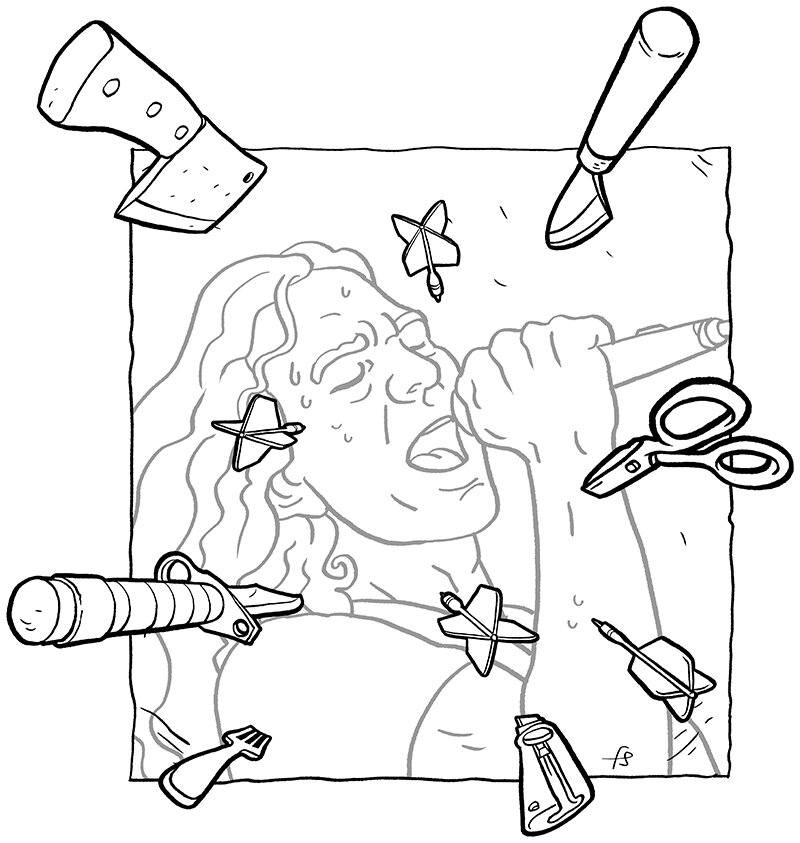This Piece on Sea-lioning Did Super Well So I'm Rerunning It!
Where it got its name.
Not too long ago, I was on a friend’s Facebook page who had posted a meme or cartoon about Donald Trump being racist. This inspired one of his friends to comment that he was certainly no fan of Donald Trump and found him abrasive on a personal level, but that calling someone racist was a very serious accusation, and he would need to see some solid, concrete evidence from objective sources before he would consider the possibility that, in 2020, that Donald Trump might be racist.
What made this stance maddening was that the commenter was pretending to operate in good faith. He presented himself as someone who was no fan of Trump and someone who would certainly be open to having his opinion of the president changed in the face of overwhelming, irrefutable evidence.
As I often do in instances like this, I clicked on the man’s profile, and sure enough, he was an arch-conservative who got his news from Breitbart, or rather his “news” from Breitbart, and regularly posted anti-BLM and anti-Antifa memes. It consequently seems safe to assume that no amount of evidence could possibly convince this gentleman that Trump was at all racist, particularly if it were from places like CNN or The New York Times, which he would undoubtedly consider hopelessly biased against conservatives and consequently worthless.
Whether he was aware of it or not, this gentleman was engaged in a practice called “Sea-lioning”, which Wikipedia defines as “a type of trolling or harassment that consists of pursuing people with persistent requests for evidence or repeated questions, while maintaining a pretense of civility and sincerity. It may take the form of "incessant, bad-faith invitations to engage in debate.”
The man who needed an abundance of evidence before he would even consider the possibility that Donald Trump is racist probably did not think of himself as a troll. Heck, he could very well have thought that he was arguing in good faith and that, with the right evidence and reasoning, he could be moved to believe that Trump is, in fact, someone with problematic views regarding people of color. But that does not mean that he was not sea-lioning and wasting everyone’s time and energy with his stubborn refusal to acknowledge the seemingly irrefutable fact that Trump has a famously, demonstrably fucked-up history when it comes to his treatment of African-Americans, individually and as a group.
I got so annoyed with this dude that I replied to one of his comments with, “This has absolutely no relevance to this conversation, of course, but sea-lining is an online trolling technique where someone repeatedly asks for evidence and proof as a way of wasting the other side’s time and energy.”
This made the man very angry. He grew indignant at the idea that I was accusing him of being a troll. This afforded me an opportunity to sea-lion a sea lion. I responded by saying that I explicitly stated that the concept of sea-lioning had no relevance to the conversation at hand, so obviously, I could not have been accusing him of trolling. This made him angrier and angrier, and I just kept asking him for evidence that I was accusing him of trolling or sea-lioning when I explicitly said that I was not doing so.
There are many toxic elements to sea-lioning. One of them is that people who engage in it are pretending to make the awful world of heated online political discourse kinder, gentler, and less divisive by opening themselves up to having their minds and opinions changed through honest debate and solid argumentation when they’re actually committed to doing the opposite. Instead of bringing warring sides together in the spirit of honest, open debate and conversation, sea-lioners are luring unsuspecting lefties into a trap that drains them of their time, energy and will to fight.
Sea-lioning makes the already toxic world of online political squabbling even worse. But you can’t fight the plague of sea-lioning unless you know what it is, why it’s done, and why it makes winning an argument not just difficult but impossible.
Don’t waste your time and energy with trolls. You’ll never win them over to your way of thinking. Think of them as energy vampires, like Colin Robinson in What We Do in the Shadows; nothing good can come of engaging, and you can save yourself a world of aggravation and annoyance by opting out of a can’t-win proposition.
Be among the first to contribute to the Gofundme over at https://www.gofundme.com/f/support-nathans-journey-to-dental-implants
Did you enjoy this article? Then consider becoming a patron here
AND you can buy my books, signed, from me, at the site’s shop here




